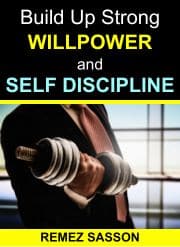
Every great journey begins with a single question. As life coaches, we embark on journeys with our clients, helping them discover their true selves, achieve personal growth, and attain their goals.
One of the most effective tools in our coaching toolbox is the art of questioning. Mastering this tool allows us to draw out individuals’ insights, increase their clarity, and guide them towards the change they seek.
Why Is Questioning Important in Coaching?
Questions in coaching are like keys that open doors to hidden rooms within the mind. They are used not merely to glean information, but to provoke thought, uncover beliefs, inspire self-discovery, and facilitate personal transformation.
Browse our online courses on meditation, positive thinking, overcoming procrastination, confidence, and freedom from distractions.
In essence, good questioning can help clients shed light on their own experiences, enabling them to realize their true potential.
The Power of Open-Ended Questions
In life coaching, open-ended questions are typically more beneficial than closed-ended ones.
While closed-ended questions elicit simple yes or no responses, open-ended questions compel the client to think, reflect, and respond in detail.
For example, instead of asking “Are you satisfied with your job?” (a closed-ended question), you might ask “What aspects of your current job are fulfilling, and which ones are not?”
This type of questioning opens up a broader spectrum of exploration and understanding.
The Socratic Method
This approach to questioning, inspired by the ancient Greek philosopher Socrates, emphasizes the importance of inquiry for the sake of stimulation and thought. By using the Socratic method, a coach can help a client unravel complex issues, identify their root causes, and clarify their values and beliefs.
A typical Socratic question might be, “What underlying beliefs might be influencing this perspective?”
Empowering with ‘What’ and ‘How’
The words ‘What’ and ‘How’ are particularly powerful in a coach’s question vocabulary. These words foster exploration and ownership, encouraging clients to focus on their thoughts, feelings, and behaviors.
‘What’ questions help clients explore their feelings, aspirations, and motivations. For example, “What does success look like for you?” allows clients to define their own versions of success.
‘How’ questions, on the other hand, challenge clients to consider the methods and strategies they can employ to achieve their goals.
A question like, “How can you incorporate more exercise into your daily routine?” encourages practical problem-solving.
Avoiding ‘Why’ Questions
While ‘Why’ questions have their place, they can sometimes lead to defensive responses.
Instead of encouraging introspection, they can make clients feel like they need to justify their actions or feelings.
A better approach is to reframe ‘Why’ questions into ‘What’ or ‘How’ questions. For instance, instead of asking, “Why did you react that way?” ask “What triggered that reaction in you?” or “How might you respond differently in the future?”
Navigating with Clarifying Questions
Clarifying questions is another vital tool for coaches. They help to ensure that both the coach and client fully understand a situation, feeling, or goal. These questions can range from “Can you elaborate on that?” to “What do you mean when you say…?”
Using these questions demonstrates a coach’s active listening skills, ensuring that the client feels heard and understood.
Embracing Silence
A significant aspect of effective questioning is being comfortable with silence. After asking a question, allow the client time to think and respond.
Silence creates space for introspection and self-discovery, which is the heart of coaching.
Final Thoughts
The art of questioning in coaching is not about interrogation but exploration. As life coaches, our goal is not to provide answers, but to guide our clients in finding their own.
Questions are the compass that guide this journey, helping clients unlock insights and gain clarity about their lives.
Mastering the art of questioning is a continuous process, built on practice, patience, and a genuine curiosity about people. It involves understanding your clients, choosing your questions wisely, and knowing when to listen.
As you grow and develop in your coaching practice, the art of questioning will become an instinctive part of your approach, enabling you to catalyze profound transformations in your clients’ lives.
Remember, every great journey begins with a single question. So, as a life coach, don’t just ask questions. Ask the right ones.
Conclusion
The art of questioning is a cornerstone of effective life coaching, a catalyst for sparking the transformational change that individuals seek. It is not about prying or probing, but rather about empowering clients to explore their own thoughts, feelings, and motivations.
By strategically using open-ended questions, the Socratic method, ‘What’ and ‘How’ inquiries, and clarifying questions, coaches can facilitate the journey of self-discovery and personal growth.
Embracing silence, too, is an integral part of this art, allowing the much-needed space for reflection and introspection.
Mastering this art of questioning, however, isn’t a one-time achievement, but a lifelong pursuit that requires continual practice, empathy, and a genuine curiosity about people.
As a life coach, when you refine your questioning skills, you are better equipped to guide your clients toward unlocking their insights and achieving the clarity they seek in their lives.
Remember, the essence of coaching lies not in providing answers, but in guiding others to discover them for themselves. Therefore, be not just a coach who questions, but one who asks the right questions, fostering a space where clients can illuminate their own paths.
As each journey begins with a question, let us remember the transformative power of the questions we, as life coaches, have the privilege to ask.


